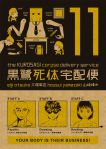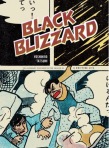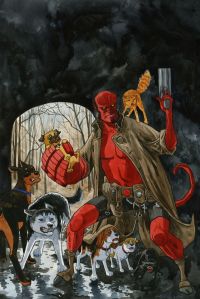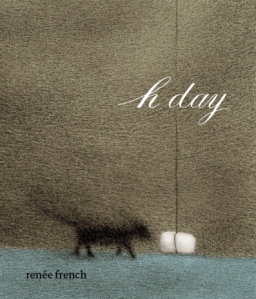I know it’s probably inappropriate to rob you of your right to vote during the week if Independence Day, but there just isn’t enough new material to run either dubious manga or BL polls. There are a couple of new titles that look perfectly awful, but I can’t bring myself to run the risk of ever having to read either of them. And there’s only one new BL title due. As if to compensate for this, Previews is packed with tempting debuts and new volumes of beloved series.
The madness begins with Kodansha Comics providing all of the Sailor Scouts you can handle. There’s the first volume of Koji Kumeta Naoko Takeuchi’s Codename: Sailor V (order number JUL11 1144, $10.99), the prequel to Sailor Moon that has never been published in English, and there’s the first volume of Kumeta Takeuchi’s Sailor Moon itself (order number JUL11 1150, $10.99). Kodansha rather cheekily describes this as “the biggest manga launch of 2011 from any publisher.” I can’t really argue with the truth of that. Of course, if it’s so big, you might get the details on your web site.
I’ve never heard of this book, but I trust NBM, so I’m on board for Takashi Murakami’s Stargazing Dog (order number JUL11 1174, $11.99). This two-volume series originally ran in Futubasha’s Manga Action. It’s about a depressed loner whose life is vastly improved by the adoption of a dog.
Not content with one amazing debut, Vertical doubles up, first with Uumaru Furuya’ No Longer Human, an adaptation of the acclaimed novel by Osamu Dazai (order number JUL11 1258, $10.95). Furuya updated Dazai’s tale of an emotionally troubled man for his three-volume adaptation, which ran in Shinchosha’s Comic Bunch. Side note: Dazai’s novel played a key role in Mizuki Nomura’s excellent light novel, Book Girl and the Suicidal Mime (Yen Press).
If there’s been a manga series that received more attention from mainstream media than Tadashi Agi’s The Drop of God (order number JUL11 1259, $14.95), I can’t think of it. This wine-soaked seinen title follows the rivalry between a wine critic and his brother as they compete for the right to inherit the contents of their father’s legendary cellar.
Viz has a ton of new volume of great series, but the only noteworthy debut is a 3-in-1 release of X by CLAMP (order number JUL2011 1279, $19.99). I can’t find a link for it anywhere, but Viz promises a deluxe collector’s edition restored to its original orientation. As for the story itself, the end of the world is near, and super-powered people are taking sides in Tokyo. The series ran for 18 volumes in Kadokawa Shoten’s Monthly Asuka.
 New volumes of ongoing series:
New volumes of ongoing series:
- xxxHOLic vol. 17, by CLAMP, Del Rey, order number: JUL11 0986, $10.99
- The Summit of the Gods vol. 3, by Yumemakura Baku and Jiro Taniguchi, Fanfare/Ponent Mon, order number JUL11 1106, $25.00
- Black Metal vol. 2, by Rick Spears and Chuck BB, Oni Press, order number JUL11 1195, $11.99
- Twin Spica vol. 9, by Kou Yaginuma, Vertical, Inc., order number JUL11 1260, $10.95
- One Piece vol. 58, by Eiichiro Oda, Viz Media, order number JUL11 1271, $9.99
- Cross Game vol. 5, by Mitsuru Adachi, Viz Media, order number JUL11 1286, $14.99
- Kamisama Kiss vol. 5, by Julietta Suzuki, order number JUL11 1261, $9.99
- Bunny Drop vol. 4, by Yumi Unita, order number JUL11 1300, $12.99
That’s kind of hefty! Start filling your change jars now!
































Meh manga
Earlier this week, Kate Dacey examined the concept of “meh” as it relates to critical discourse. Conveniently enough, I’ve just finished trudging through two titles that fall squarely in the “meh” range. Neither is especially bad, but neither transcends competence or adds any secret ingredient that makes them linger in the memory or heart.
Both are shôjo titles from Del Rey’s defunct manga line, so it may seem a little harsh to dissect them, but I liked Kate’s piece and the ensuing discussion so much that my mind is stuck in “meh” mode, and I need to push these books out of my system by taking quick looks at their respective – and admittedly routine — failures.
Maybe it’s the result of reading the whole thing at once rather than bit by bit, but Hyo’s civilization seems to happen too quickly. The earlier chapters, with Hyo bouncing around in his school uniform (when he can be bothered to keep it on) have some funny bits, but things level out too quickly, and he becomes an only slightly off-kilter cute boy. Even before he settles down, he’s so good-hearted that Chino’s resistance seems perfunctory and even snobbish.
But the ultimate failing here is that the ending is telegraphed. There’s no suspense in the evolution of the relationship, moving from beat to beat in predictable, almost plodding rhythm. Ando’s art has always struck me as a more coherent version of Arina Tanemura’s. The coherence is welcome, even if the volume of screen tone is equivalent, but Ando’s kind of visual cuteness badly needs some narrative darkness or edge for counterpoint. It reinforces the bland sweetness of the story rather than subverting it, and vice versa.
Hikage is just so blandly sweet and earnest that it’s hard to invest much interest in her plight. I found myself reaching the uncharitable conclusion that she’s not more popular because she’s kind of a bore. Neither her desire to connect with people nor the obstacles to that goal feel very specific; she’s just a person who fades into the background, and that doesn’t even feel particularly unfair. She’s less of an underdog than a charity case — a nice, nondescript girl who can’t quite do the heavy lifting of a protagonist.
Complicating things is the fact that her rivals seem just plain mean. The notion of someone being threatened enough by this homeless kitten reduces them to overreacting, insecure caricatures. This is always a tricky balance, crafting nuanced foes for an openhearted innocent, and Toyama doesn’t manage to strike it.
Toyama is scrupulous in mapping out Hikage’s steps out of the shadows. She’s trying to do the hard work of building investment in Hikage’s evolution, but the formula of this kind of story overwhelms any spark that might be generated by quirky characters or scenarios. It ends up reading more like a “How to Be Popular” manual than an organic story.
This book collects the first two volumes of the five of the series, which ran in Kodansha’s Nakayoshi. The remaining volumes are on Kodansha’s publishing schedule for this year.
(These comments are based on review copies provided by the publisher.)